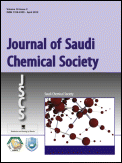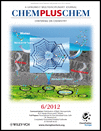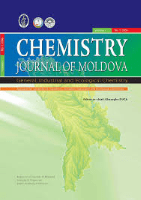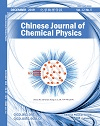
Physical Chemistry Research
Scope & Guideline
Connecting researchers to innovate in physical chemistry.
Introduction
Aims and Scopes
- Computational Chemistry and Molecular Modeling:
The journal showcases research utilizing computational methods to predict molecular behavior, stability, and interactions, which is crucial for drug design, material science, and chemical reactions. - Synthesis and Characterization of Nanomaterials:
Research on the development and analysis of nanomaterials, including their properties and applications in areas such as catalysis, energy storage, and environmental remediation. - Thermodynamic and Kinetic Studies:
Emphasis on the thermodynamic properties of chemical systems, including solubility, adsorption, and reaction kinetics, providing insights into process optimization and efficiency. - Environmental and Green Chemistry:
Focus on sustainable practices, including the removal of pollutants and the use of eco-friendly materials and methods in chemical processes. - Spectroscopic and Analytical Techniques:
Utilization of advanced spectroscopic methods for the analysis of molecular structures and interactions, which informs both fundamental and applied research. - Interdisciplinary Research:
Encouragement of studies that bridge physical chemistry with biology, materials science, and nanotechnology, highlighting the versatility of chemical research.
Trending and Emerging
- Artificial Intelligence and Machine Learning in Chemistry:
The integration of AI and machine learning techniques for predictive modeling and data analysis is becoming a significant trend, enhancing the efficiency and accuracy of chemical research. - Sustainable and Green Chemistry Practices:
A growing focus on environmentally friendly processes and materials is evident, with research emphasizing the reduction of chemical waste and the use of renewable resources. - Advanced Characterization Techniques:
Increasing use of sophisticated characterization techniques, such as high-resolution spectroscopy and advanced microscopy, to gain deeper insights into material properties and behaviors. - Drug Discovery and Computational Pharmacology:
Research aimed at drug design using computational methods, including molecular docking and QSAR modeling, is trending as the pharmaceutical industry seeks efficient pathways to new therapeutics. - Nanotechnology Applications:
Emerging themes in the application of nanotechnology for various sectors, including medicine, energy, and environmental science, are prominent, reflecting its growing importance in physical chemistry.
Declining or Waning
- Traditional Organic Synthesis Methods:
Research centered on conventional organic synthesis techniques has seen a decline as more emphasis is placed on computational methods and greener alternatives. - Basic Physical Chemistry Concepts:
Papers focusing solely on fundamental physical chemistry principles without applied context are becoming less prominent, as applied research gains priority. - Experimental Studies with Limited Applicability:
Studies that do not integrate computational approaches or real-world applications are less frequently published, indicating a trend towards more impactful research. - Single-Focus Studies:
Research that does not incorporate interdisciplinary approaches or multiple methodologies is decreasing, as the journal increasingly values comprehensive studies.
Similar Journals

Journal of Saudi Chemical Society
Elevating Research Standards in the Chemistry Community.The Journal of Saudi Chemical Society, published by ELSEVIER, stands as a premier platform for advancing knowledge in the field of chemistry. Since its inception in 2009, this Open Access journal has garnered significant attention, securing a prestigious Q1 ranking in the Chemistry (miscellaneous) category for 2023, reflecting its position among the top journals in the discipline. With an impressive Scopus ranking of #66 out of 408 in General Chemistry, this journal boasts a commendable 83rd percentile, underscoring its impact and relevance in the global research community. The journal aims to disseminate high-quality research articles, reviews, and case studies, fostering innovation and collaboration among chemists and allied professionals. By enabling widespread access to cutting-edge research, the Journal of Saudi Chemical Society plays a crucial role in supporting the educational and professional development of students, researchers, and practitioners alike, making it an essential resource for anyone invested in the dynamic field of chemistry.

ChemPlusChem
Catalyzing Knowledge Exchange in the World of ChemistryChemPlusChem is a premier journal published by WILEY-V C H VERLAG GMBH, dedicated to the vibrant field of chemistry. With an ISSN of 2192-6506 and an impressive Q1 ranking in Scopus's 2023 category for miscellaneous chemistry, this journal serves as a significant platform for the dissemination of high-quality research and innovative findings. Since its inception in 2012, ChemPlusChem has fostered interdisciplinary collaborations, encapsulating a wide array of topics within chemistry that facilitate scientific advancement and education. The journal features a robust open access system, enabling extensive visibility for authors while providing easy-to-access resources for researchers, professionals, and students globally. Located in Weinheim, Germany, ChemPlusChem reflects international standards and ambitions, striving to enrich the global scientific community through rigorous research and engaging scientific discourse.

Computational and Theoretical Chemistry
Unlocking Molecular Mysteries Through Theoretical FrameworksComputational and Theoretical Chemistry, published by ELSEVIER, stands at the forefront of interdisciplinary research in the realms of computational chemistry, theoretical physics, and biochemistry. With its ISSN 2210-271X and E-ISSN 1872-7999, the journal has established a significant presence in the academic community since its inception. Covering innovative computational methodologies and theoretical advancements, it addresses critical issues in condensed matter physics and molecular biochemistry, providing a rich resource for scholars and industry professionals alike. The journal enjoys a respectable impact factor and ranks notably in several Scopus categories, making it a vital platform for disseminating high-quality research. It adopts an open-access model, facilitating wider readership and engagement, which is essential for fostering collaborative innovations in the scientific landscape. As it continues to evolve from 2011 to 2024, Computational and Theoretical Chemistry is committed to advancing knowledge and promoting insightful discussions within the scientific community.

Chemistry Journal of Moldova
Advancing Chemistry: Bridging Research and Innovation in MoldovaChemistry Journal of Moldova is a pioneering open-access journal dedicated to fostering the dissemination of significant research in the diverse fields of chemistry, including Environmental Chemistry, Process Chemistry and Technology, and more. Published by the esteemed Academia Sciences Moldova, Institute of Chemistry, this journal has been at the forefront of scientific inquiry since its establishment in 2006. With an ISSN of 1857-1727 and a digital presence through its E-ISSN of 2345-1688, it provides an accessible platform for researchers, students, and professionals to share and engage with cutting-edge findings. Although currently ranked in the Q4 quartile in several chemistry categories, the journal is committed to improving its impact within the academic community and aims to highlight emerging trends and technologies in the chemistry domain. The journal's office is located at 3 Academiei Str, Chisinau MD-2028, Moldova. As it converges its publication years from 2016 to 2024, the Chemistry Journal of Moldova invites all contributors and readers to explore its rich repository of research that bridges innovative ideas to practical applications.

CHINESE JOURNAL OF CHEMICAL PHYSICS
Bridging Theory and Practice in Chemical PhysicsChinese Journal of Chemical Physics, published by the Chinese Physical Society, serves as a pivotal platform for advancing the field of chemical physics, encompassing groundbreaking research and innovative methodologies since its inception in 2000. With an ISSN of 1674-0068 and E-ISSN of 2327-2244, the journal has established itself within the academic community, reflected in its 2023 classification as Q3 in Physical and Theoretical Chemistry and a Scopus rank of #142 out of 189, representing the 25th percentile in this competitive field. Although it does not currently operate as an open-access publication, its commitment to disseminating pivotal scientific research continues to attract scholars and professionals alike. The journal aims to bridge the gap between theoretical principles and practical applications in chemical physics, thereby fostering collaboration and innovation. By contributing significantly to the discourse in this dynamic domain, the Chinese Journal of Chemical Physics remains an essential resource for researchers, professionals, and students eager to stay abreast of contemporary developments.

ACS Physical Chemistry Au
Pioneering discoveries in physical chemistry and beyond.ACS Physical Chemistry Au, published by the American Chemical Society, is a pioneering open-access journal that provides a dynamic platform for researchers and professionals in the field of physical chemistry and its interdisciplinary connections. Since its inception in 2021, the journal has made significant strides in disseminating high-quality research, evidenced by its impressive standings in various categories, including Q1 rankings in Chemistry (miscellaneous), Computational Theory and Mathematics, and Physical and Theoretical Chemistry as of 2023. With a commitment to enhancing the visibility and accessibility of scholarly work, ACS Physical Chemistry Au offers a robust Open Access model, ensuring that groundbreaking research is freely available to a global audience. The journal serves as an essential resource for researchers, students, and practitioners seeking to advance knowledge in computational theory, physical chemistry, and their applied sciences. With an ISSN of N/A and an E-ISSN of 2694-2445, the journal is poised to make a lasting impact in the academic community.

JOURNAL OF THE INDIAN CHEMICAL SOCIETY
Advancing Chemical Knowledge from India to the WorldJournal of the Indian Chemical Society, published by Elsevier, stands as a cornerstone in the field of chemistry, particularly representing the rich chemical research emanating from India.
With a significant history dating back to its establishment, this journal encompasses diverse disciplines including Drug Discovery, Electrochemistry, Inorganic Chemistry, Organic Chemistry, and Physical and Theoretical Chemistry, reflecting the evolving landscape of chemical sciences.
Despite being positioned in the Q3 category across multiple quarters, the journal demonstrates promising rankings in various chemistries, highlighting its commitment to advancing the knowledge and application of chemical sciences. While currently not available as an open access journal, the Journal of the Indian Chemical Society is dedicated to providing a platform for high-quality research that fosters innovation and collaboration among researchers, professionals, and students worldwide.
With its continuous publication from 1973 to the present, it serves as an essential repository for cutting-edge findings and developments in chemistry, striving to connect academia with industry and practice.

Central European Journal of Energetic Materials
Exploring Innovations in Materials ChemistryWelcome to the Central European Journal of Energetic Materials, a distinguished publication in the field of energetic materials, published by the INST INDUSTRIAL ORGANIC CHEMISTRY in Poland. This journal, with ISSN 1733-7178, has been a vital platform for researchers since its inception in 2009, promoting the latest advancements and discoveries in the dynamic fields of Materials Chemistry and Organic Chemistry. With an admirable presence in the academic community, it boasts a Q3 ranking in Materials Chemistry and a Q4 ranking in Organic Chemistry for 2023, showcasing its contribution to foundational research despite competitive challenges. Researchers looking to disseminate their findings will find this journal a reputable venue, supported by rigorous peer-review processes and a commitment to open dialogue within the scientific community. The journal is pivotal for academics, professionals, and students interested in the synthesis, characterization, and application of energetic materials, making it a notable resource for understanding the complexities and innovations within this specialized domain.

CHEMICAL JOURNAL OF CHINESE UNIVERSITIES-CHINESE
Elevating Scholarly Dialogue in Chemistry.CHEMICAL JOURNAL OF CHINESE UNIVERSITIES-CHINESE, published by Higher Education Press, serves as a vital platform for advancing research in the field of chemistry. With a history dating back to 1996, this journal has evolved to encompass a wide range of topics fundamental to the chemistry community, catering to both applied and theoretical perspectives. Although classified in Quartile 4 within the broader chemistry category, it remains a significant contributor to the knowledge base, ranking 281st out of 408 journals in the general chemistry category according to Scopus. Positioned in Beijing, China, the journal aims to foster collaboration among researchers and professionals while disseminating innovative research and developments. By promoting open exchange of ideas in chemistry, it strives to elevate the scholarly dialogue and contribute to ongoing education for students and professionals alike, with its content accessible through institutional subscriptions.

Reaction Kinetics Mechanisms and Catalysis
Fostering Collaboration in Reaction MechanismsReaction Kinetics Mechanisms and Catalysis is an esteemed academic journal published by SPRINGER, specializing in the fields of catalysis and physical and theoretical chemistry. With ISSN 1878-5190 and E-ISSN 1878-5204, this journal serves as a crucial platform for researchers and professionals to disseminate and engage with cutting-edge findings in reaction kinetics, catalytic processes, and mechanistic insights. Operating under an open access model, the journal ensures broad accessibility to its content, enhancing its impact within the scientific community. As of 2023, it is positioned in the Q4 category in catalysis and Q3 in physical and theoretical chemistry, reflecting its growing influence, yet also its potential for further advancement. Aiming to foster collaborations and innovations, Reaction Kinetics Mechanisms and Catalysis is poised to continue shaping the discourse in its field, making it an essential read for researchers, students, and industry professionals alike.